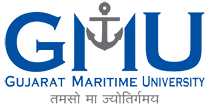There are a wide variety of jobs available in the Indian maritime sector, including:
Maritime Lawyer: Specializes in legal issues related to the maritime industry, such as shipping regulations, trade laws, and maritime disputes.
Shipping and Logistics Manager: Oversees the shipping and logistics operations of maritime businesses, managing the movement of goods and cargo between ports and overseeing logistics processes such as inventory management and warehousing.
Trade Compliance Manager: Ensures that maritime businesses comply with domestic and international trade laws and regulations, managing issues such as customs clearance, import/export compliance, and trade sanctions.
Marine Insurance Claims Specialist: Handles insurance claims related to maritime incidents, such as shipwrecks, collisions, and cargo damage.
Port Operations Manager: Oversee the day-to-day operations of ports, managing issues such as cargo handling, vessel scheduling, and port security.
Marine Surveyor: Assesses the condition and value of ships and cargo, ensuring compliance with industry standards and regulations.
Customs Broker: Facilitates the clearance of goods through customs, ensuring compliance with customs regulations and managing import/export documentation.
Freight Forwarder: Manages the transportation of goods and cargo between ports, coordinating with shipping companies and logistics providers to ensure timely and efficient delivery.
Port Manager Trainee: Documents port activities and use the Port Community System to facilitate information exchange between organizations. They also assist with fire and safety operations and goods handling at ports.
Business Analyst for Port Community System (PCS): Identifies business needs, liaison between business and technical personnel, manage testing procedures, and review software upgrades for business partners.
Logistics Coordinator/Manager: Oversees transportation of goods, analyzing cost-effective methods and ensuring compliance with regulations. They perform audits, provide training, and collaborate with senior management to streamline processes. They also assist other companies with their import and export operations and implement trade agreement programs while maintaining internal controls.
Supply Chain Planner: Manages program design and launch, analyzes operations and technology, identifies opportunities for scaling, and manages team members’ performance and development. They also evaluate risks and obstacles and provide corrective actions.
Supply Chain Operations Consultant: Works with business users to gather requirements, analyze data, and implement cloud solutions for supply chain planning. They collaborate with project managers and technical teams to ensure timely delivery of projects.
Shipping Operations Executive/Coordinator: Prepares discharge and load lists, updating inventory reports and shipping line systems, preparing terminal departure reports, scrutinizing invoices of terminals and feeders, and communicating with overseas shipping lines.
Sales Profile Manager: Prepares and analyzes customer information, manages requests for profile entry, and utilizes their chemistry and regulatory knowledge to read SDS and enter specific information into profiles. They also assist CH and SKE sales and customer service.
The Overseas Shipping Coordinator: Negotiates rates, coordinates with the sales team, prepares quotes, and manages coordination between operations, shipping lines/airlines, and customer service. They maintain zero error performance and prepare reports.
